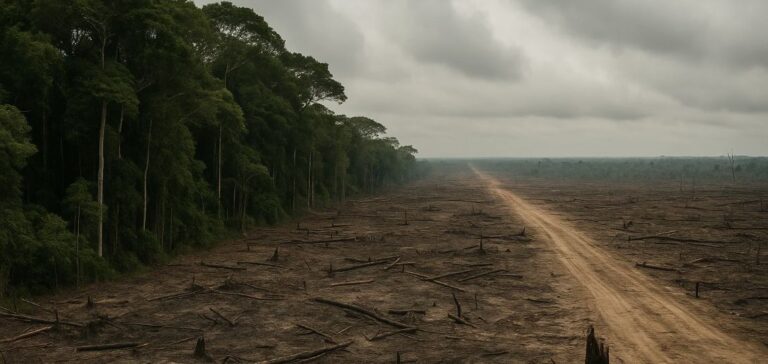Major powers, including Brazil and Australia, are accused of manipulating figures related to the CO2 absorption capacity of their forests in order to slow their transition away from fossil fuels while claiming to meet their climate commitments. This analysis comes from a report by the institute Climate Analytics, published on April 24, 2025, which highlights the weakness of the rules governing the accounting of carbon sinks. These loopholes provide the opportunity to inflate greenhouse gas emissions reduction figures.
Carbon sinks, which include soils, forests, and wetlands, are supposed to absorb a portion of CO2 emitted by human activities. However, these natural areas are difficult to assess accurately, and scientists fear that they absorb less due to the effects of climate change, such as more frequent wildfires. These uncertainties have not prevented some countries from adopting optimistic assumptions that artificially improve their national carbon balances.
This approach allows some countries to present a more favourable balance while delaying their energy transition, a strategy that could be reinforced during the upcoming climate conference, COP30, scheduled for November 2025 in Brazil. The report from Climate Analytics warns that these practices obscure the scale and speed of the fossil fuel emission reductions needed for each country to do its part under the Paris Agreement.
Examples of contested practices
Since 2018, Australia has repeatedly reassessed the impact of its forests on its carbon balance. According to the latest estimates, it claims to have reduced its net CO2 emissions by 28% between 2005 and 2024, despite its gross emissions decreasing by only 2%. This revision makes Australia a striking example of a country that, while increasing its absorption assumptions, minimises the real impact of its energy policy.
Meanwhile, Brazil has announced that it will reduce its carbon pollution by 59% to 67% by 2035 compared to 2005, but without specifying the exact role of its forests in this reduction. According to the Climate Analytics institute, this reflects a manipulation of figures that allows the country to mask the slow pace of its necessary energy transition.
Lack of international rules
The report denounces the absence of strict rules to regulate assumptions about the performance of carbon sinks. The 2015 Paris Agreement allows each country to formulate its own estimates, a flexibility that, according to Claudio Forner, co-author of the study, encourages some states to “play with the system.” He points out that without strict rules, these countries continue to artificially inflate their emission reductions, hindering ambitious climate action.
According to Climate Analytics experts, the uncertainty around the effectiveness of carbon sinks could account for up to three billion tonnes of CO2, a volume equivalent to the annual emissions of the European Union.





















